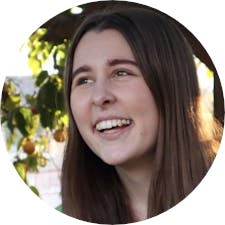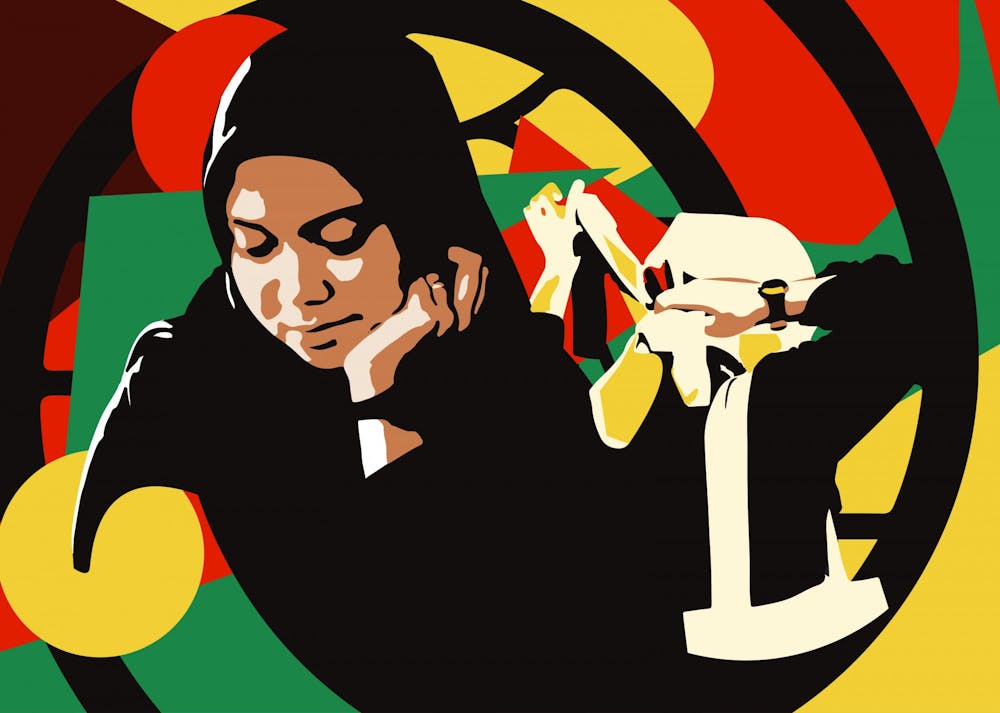In mid-December, around 60 women from Afghanistan arrived in Phoenix to continue their studies at ASU after fleeing their homeland due to the Taliban taking over the region in August.
Starting in the Spring 2022 semester, most of the women have begun studying at ASU to restart their studies, which they began at the Asian University for Women (AUW) in Chittagong, Bangladesh.
Most of the women will be taking classes through Global Launch courses to help improve their English and to learn about the degree programs ASU offers before taking general studies classes in future semesters. Some of the students are also starting regular courses this spring, said Erin Tamayo, the coordinator of the AUW Afghan Student Program and an associate global educator at Global Launch.
Global Launch is partnering directly with these students to set them up for success at ASU in their studies and lives in Arizona, Tamayo said.
“Each of them is an individual with different needs, aspirations, goals and visions for the future,” Tamayo said. “This has really been a key in our work as we aim to guide these goals and aspirations as individual students.”
Since all of these women were students at AUW, they are working with ASU to determine if they can transfer credits from that University, as some of the women were already juniors there, said Pamela DeLargy, executive director of Education for Humanity.
“Through no fault of their own, their education was interrupted and we want them to just be able to continue and have a career, like any other young woman in the world,” DeLargy said.
Rangina Hamidi is the former acting minister of education in Afghanistan who fled the country in August and joined ASU as a professor of practice at the Thunderbird School of Global Management in September. As an advocate for education, she has seen these women having large goals of not just receiving their bachelor's degree, but higher degrees as well.
“I saw that there was an incredible burst for getting a higher degree … and the will to want to go pursue a master’s degree and then for some, even a Ph.D,” Hamidi said. “I really see a bright future for almost all of them.”
ASU got involved with helping these women continue their education after the president of the Asian University for Women reached out to Michael Crow to see if women in Afghanistan who were being evacuated from their homes could continue their studies at ASU, DeLargy said.
READ MORE: ASU plans to aid Afghan refugees from Asian University for Women
Before coming to ASU, the women spent four months at Fort McCoy in Wisconsin. While there, they organized English classes for other Afghan people who were at the Wisconsin site, DeLargy said.
Right now, the women are in temporary housing around the Tempe campus. The hope is that they will be moved to on-campus housing as it becomes available, although that also depends on the academic path individual students choose as it may differ depending on what campus they end up on, Tamayo said.
The program has also received donations of clothes and other items from organizations in the community.
The students are in the process of learning about the ASU community, such as the public transportation system and life in Tempe, Scottsdale and Phoenix, DeLargy said.
“(They are learning) all the things that other students need to learn when they come here to campus, but with some added dimension,” DeLargy said.
ASU is also providing additional programs, such as health services and counseling, to support the women as they go through a massive transition in their lives. They are also receiving support from Women's Refugee Services from Valleywise Health and Blue Cross Blue Shield for additional counseling and stress management programs.
“A lot of these students worry also about what’s happening in their families and back home,” DeLargy said. “They have that additional challenge in addition to working in a different language and a different culture and a different kind of university, they have other concerns to think about as well.”
Those involved in the program, including Hamidi, are excited for these women to make a positive impact on ASU and the world as they continue to pursue their education.
“As a woman who has valued education all her life, I know the power of education and doors to opportunities that education does open for women worldwide,” Hamidi said. “I see them as very lucky individuals to be to still pursue their higher education, (as they are) from a country that unfortunately at this point, no longer provides that opportunity to girls."
Reach the reporter at mcfisch4@asu.edu and follow @morgfisch on Twitter.
Like The State Press on Facebook and follow @statepress on Twitter.
Continue supporting student journalism and donate to The State Press today.

Morgan Fischer is the politics editor, she works with her desk to cover topics related to politics in the ASU community. She has previously worked as an intern for RightThisMinute.




